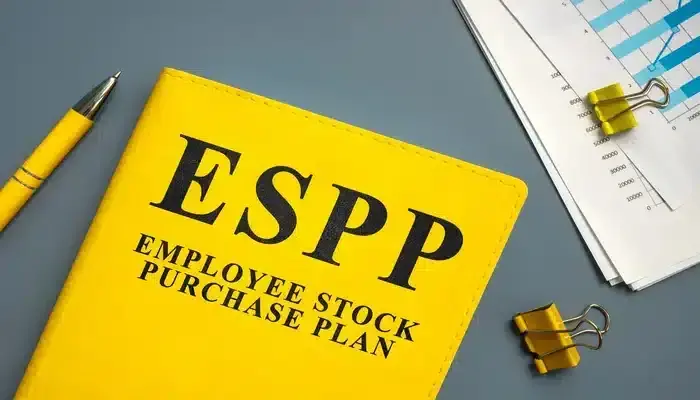What are Stock Options and What You Should Do With Them
If you are looking to invest as an expat or high-net-worth individual, which is what I specialize in, you can email me (advice@adamfayed.com) or WhatsApp (+44-7393-450-837).
Table of Contents
Introduction
What are stock options? They are a type of payment that could be granted by firms to employees, independent contractors, consultants, and investors. These contracts, or options, award employees the right to acquire or exercise a predetermined number of shares of the company at a defined price (the grant price).
There are two different kinds of stock options: incentive stock options (ISOs) that are awarded to executives and non-qualified stock options (NQSOs), which is more common.
This grant is not indefinite as you merely have a certain period of time to exercise your stock options prior to their expiration, which should be stated in your contract. Options typically expire within a decade from the date it was awarded.
If you leave the firm, you could also be required by your previous employer to exercise your options within a certain amount of time, which is usually within 90 days after you leave.
The amount of options awarded to certain employees also depends on different factors, such as what the company wants and the employees’ specialized talents as well as how long they’ve been with the business. The employees’ receipt of stock options will also need the go-ahead of investors and other stakeholders.
What are Stock Options: Granting and Vesting Fundamentals
If your job awards you stock options for a particular amount of firm shares, the terms of the stock options will be outlined in a contract (employment contract) must be signed by both you and your employer.
The grant date, or the day your options start to vest, will be included in the agreement, as well as the strike price, grant price, or exercise price. This pricing will not vary regardless of how successfully or horribly the business performs.
A stock option becomes legally available for you to exercise or purchase once it vests. Note that you won’t immediately get all of your stock options when you join a company; instead, the options will progressively vest over a period of time (vesting period).
Say, the stock options have so-called cliff of one year plus a vesting term of four years, so you will not be able to exercise any of them until after the four-year period. The good news is that due to the slow vesting of your options, you will be able to exercise part of your stock options before the vesting period has passed.
The downside is the waiting time before any of the options vest, which is where the one-year cliff comes into play. This provision will restrict you in such a way that you must work for the company for a year, minimum, before you can take advantage of any of your options. There will be no stock options available to you if you resign from the company before the one-year mark.

What are Stock Options: Value Projections
In cases where the firm is not publicly traded, it could be challenging to determine the price of your stock options. There are many estimates of a company’s stock value that are floated. Nevertheless, without a financial event, such as an initial public offering (IPO) or the disposal of the company, it is almost impossible to pin down for sure how much each share price is valued.
Some companies will be valued, and you can use that valuation to estimate how much your stock options could be. Do note that such valuations are still only estimates at best and shouldn’t be construed as unerring. In order to calculate the valuation of shares, you also must know how many shares are available overall for the corporation.
Knowing the price of the shares beforehand makes the computation relatively simpler. Each stock option will have a strike price, grant price, or the price at which you must acquire the shares.
What are Stock Options: Taxes
When you sell or exercise your stock options, taxes are typically required to be settled. You will pay a certain amount based on two things: the type of options you are offered as well as how long you spend waiting to exercise and sell.
The federal government does not provide non-qualified stock options any preferential tax treatment, while incentive stock options do get preferential tax treatment.
NQSOs are subject to ordinary income taxation by the federal government. Your income will be listed on your W-2 by the corporation that issued you the stock. The bargain element will determine how much revenue is reported. This represents the difference between the market price and the exercise price during the day you acquired the common stock of the issuer at the grant price.
Depending on how long you had the shares, you will owe taxes when you decide to dispose of them. You must report the sale as a short-term capital gain if you execute your options and subsequently sell the shares within 12 months of the exercise date. The standard federal income tax rates apply to this kind of capital gain.
If you offload your stock 12 months after exercising your options, you will have long-term capital gains on the sale. By keeping onto your shares for a minimum of a year, you could save money on taxes because long-term capital gains taxes imposed are lesser than usual rates.
ISOs function somewhat differently from NQSOs. When you use ISOs, you don’t pay taxes, but depending on how much of a bargain element you receive, you can be subject to the alternative minimum tax, which gradually phases out the income exemptions aimed for low- and middle-income people.
You will be required to pay taxes on any sales of shares obtained through ISO options. If you immediately dispose of the shares after exercising options, the bargain element is considered your normal income. The tax rates you incur are long-term capital gains rates if you keep the stock for at least 12 months after exercising it and don’t offload the shares for a minimum of two years from the award date.
What are Stock Options: Exercising Your Options
The manner and timing in which you must exercise your stock options depend on a lot of things. Your stock option strategy should not be influenced by a sense of allegiance to the organization that you’re a part of. Rather, it must be impartial and always based on the nitty-gritty of the company, your personal investment targets, your risk tolerance, and the composition of your present investment basket.
Keep your eyes on your targets and risk tolerance levels and think about how to best maximize and safeguard your assets. If you own a stock position focused on just one egg and requires more diversity, you should think over if it will be advantageous to up your stock holdings in the business. Also mull the possibility that such a bold move is too much of a risk and might be pushing you on the edge.
You must choose the opportune time should you opt to use your options and buy the stock. A lot of options can be activated over a number of years, so be mindful of the time frame of your firm’s plan.
Take into account any foreseeable or probable cash needs you may have in the near term. More so if those demands are greater, you might wish to sell your options and keep the profit.
Also take into account the company’s and the stock market’s projected performance in the future. Consider holding off on exercising your options if you believe the stock will increase significantly. This will assist to reduce portfolio risk and increase returns, provided your portfolio is sufficiently diversified.
Once you’ve exercised your stock options, you own the entire share and can sell it at any time you want. You could also keep it and wait for a further jump in the share value.
Bear in mind that you will also be responsible for any commissions, charges, or taxes related to exercising and selling your options.
Additionally, there are several ways to exercise your options without having to fork out the money for the acquisition.
For one, you could execute the transaction by buying your options and then immediately selling them to accomplish this. Instead of requiring you to pay for the exercise out of your own pocket, the brokerage managing the sale will essentially advance you the cash, using the proceeds to pay for the price of the shares you purchased.
Selling just a portion of shares to recoup your investment in them while keeping the remaining shares is an additional method of exercising your options.
Your options are exercisable at any time after they vest until they expire, which is normally within a decade from the time they are awarded, so long as you continue to work for the company.
For more information on the exercise period which you have to use if you want to exercise your options after leaving your job, be sure to dig into the fine print of your stock options contract with your previous employer.
There are various factors to take into account when deciding whether it is best to execute your stock options within the period before the options granted to you expires, such as:
Worth of Stock Options

Of course, your options must have value, which is made possible when their strike price is lesser than how much the shares of your firm are being sold in a stock exchange.
You have a choice to activate your options and acquire company shares at the lesser strike price then sell such shares on the market or keep your options and wait for better market terms. Selecting the latter alternative entails having faith in your organization’s potential.
You also have to be open to the possibility that the selling price will not rise over your options’ strike price, so your options can end up worthless upon its expiry. Do keep an eye on the expiry date since an option’s worth can be lost for failure to exercise it at the most appropriate time.
Public vs Private Firm
Whether your business is privately held or publicly traded also matters. You will have to come up with the cash to exercise and pay for the acquisition since shares of private corporations aren’t sold on the stock market. Additionally, you run the danger of needing to wait a long period for your shares to go through an initial public offering or another liquidity incident before you can sell them and get your money back.
It may be a smart decision to think about exercising your incentive stock options once your private firm files for an IPO. To be eligible for preferential tax treatment, incentive stock options must be held for a year after being exercised and for two years after being granted.
It usually takes a business a number of months to prepare after filing for an IPO and prior to the listing itself. Employees working for a company that’s going public frequently experience a lock-up period right after listing, during which they are prohibited from offloading their shares for up to a half year.
The cumulative span of time from filing to the period after lock up will presumably correspond with the point at which you can also meet the conditions to receive favorable tax treatment if you exercise your options during the moment of filing.
Financial Position
Always check on the financial targets that you have set for yourself. You might not require any extra cash from exercising your options or offloading shares if your salary supports all of your costs. You could also delay exercising your options until a future date if you have deferred pay that will start to arrive in the near term.
In light of these conditions, delaying your exercise can allow your firm shares to appreciate in value over a longer period of time.
However, you might require a financial boost for another reason, such as to roll out a business, pay for your child’s education, or buy a property. You could be able to finance a different, more appealing objective or investment prospect when you exercise your options and dispose shares.
Your whole investment basket and its allocation of assets are extra factors to take into account. You could decide to execute your options, sell your firm shares, and then use the money to diversify your portfolio if you have too much exposure to those shares.
Your Taxes
Your taxes on capital gains, ordinary income, as well as alternative minimum tax, will rely on the kind of employee stock options you own. You should think about the tax repercussions of exercising your options and keeping company shares before disposing, along with how it will mesh with your financial targets and income needs.
Your stock options’ bargain element will typically be taxed as ordinary income tax rates in the year of exercise for NSOs or ISOs traded with no qualifying sale.
You could consider postponing the exercise of your options or stretching the exercise out over some years if your current earnings for the year already puts you under a high income tax band. The same should apply if any additional gains from stock options could push you into such category.
You are only subject to tax when you sell your company’s shares as in the case of ISOs with a qualifying disposal. The bargain element could lead to alternative minimum tax if you retain firm shares so as to achieve preferential tax treatment.
However, if every sign points to a rising stock price and you have the financial means to hold onto your shares for at least 12 months, you might wish to exercise your options right away. By doing this, you’ll pay little in income and capital gains taxes.
Additionally, if your window of opportunity to exercise will soon close, you might want to do so to secure in your lower fee.
What are Stock Options: Are you allowed to exercise early? Should You?
Your employer might let you exercise employee stock options before they vest. Meaning, even if you paid for company shares, you would still have to wait until the original vesting period was complete before the shares become formally yours and could be offloaded.
Paying for something prior to it becoming yours may seem irrational. Additionally, there is a chance that the shares won’t ever hit the value you desire if you exercise your option early.
Someone would consider this move because it commences the holding time table for ISOs to be eligible to advantageous tax consideration.
You may be able to avoid taxes by exercising your options early. You can submit an 83(b) election to ask the IRS to acknowledge your income now, before the shares increase again, if you can buy firm shares once the strike price is near the market price.
Since you won’t have made much money, you’ll pay a lower tax than you would if taxes were assessed when the shares’ value increases in the future. However, keep in mind that you must file the 83(b) election within 30 days of exercising.
What are Stock Options: Other Types of Employee Equity Compensation

Employees can be paid in a variety of methods that are akin to obtaining direct stock options. These can be grants, which grant the right to purchase the stock following the fulfillment of specific requirements, or full plans, which offer each employee the ability to purchase shares.
The most common forms of employee stock options, or alternate means to buy stock, are as follows:
Employee Stock Purchase Plans
Any employee may buy business stock under a full employee stock purchase plan, regardless of their job title or level of employment. In order to aid the employees, this frequently entails giving a discount on the stock’s value during the time of acquisition. A good illustration of an employee stock purchase plan is an employee stock ownership plan.
Restricted Stock Unit Awards
This one is the most common type of employee stock plan for startup firms. Restricted stock units (RSUs) offers various features, such as a vesting term that specifies how long a personnel must work for the business in order to be eligible to acquire a particular number of stock options. The employee has the time period specified in the grant agreement to exercise their options after the criteria have been satisfied.
Phantom Stock
Receiving phantom stock is yet another means that employees might profit from the growth in stock value of the firm. In essence, you are being paid a bonus based on the value of a given number of shares at a particular period. In this case, there is no transfer of ownership or exercise of shares. In some cases, actual shares can be acquired instead of cash bonuses by converting phantom stock.
What are Stock Options: Final Thoughts
There is absolutely nothing to be unhappy about having a large stock option benefit. The potential that a significant portion of your assets will be invested in a single stock poses a substantial risk, though.
Generally speaking, you’d want to steer clear of having over 10% to 15% of your portfolio invested in a single business. You wouldn’t be sufficiently diversified to mitigate the damage should the organization were to run into financial trouble and liquidate.
If you’re approaching that range, you might consider offloading enough stock annually to protect your retirement savings from excessive price fluctuation risk.
Employee stock options may be an important component of your remuneration, particularly if you are employed by a company whose stock has recently had a significant surge. Make sure you utilize your options before they lapse in order to benefit from the award fully.
Stock options can be quite advantageous when you retire, so be certain that you make use of this benefit should it be extended to you. As always, be mindful of the tax implications of your choices.
Pained by financial indecision? Want to invest with Adam?

Adam is an internationally recognised author on financial matters, with over 760.2 million answer views on Quora.com, a widely sold book on Amazon, and a contributor on Forbes.



